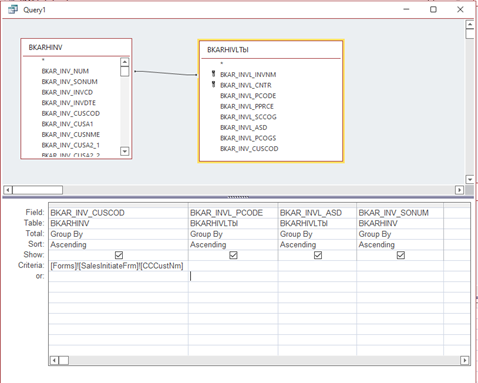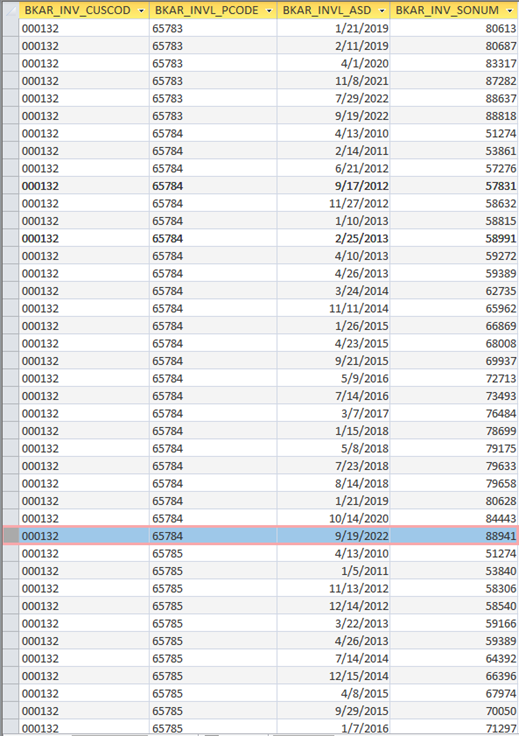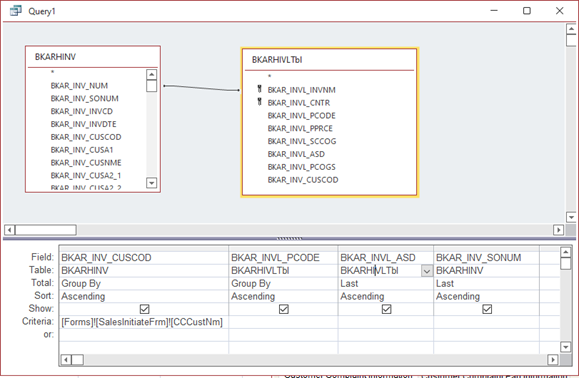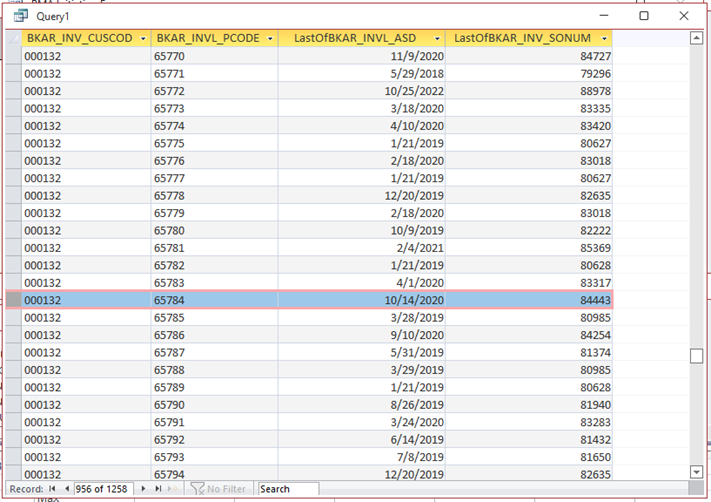Are you attempting to return the most recently dated row per BKAR_INVL_PCODE per BKAR_INV_CUSCOD? If so you misunderstand the meaning of the LAST operator. It will not return the latest date. For that you must use the MAX operator. Moreover, you cannot simply GROUP BY other columns if, in addition to the aggregated value, you wish to return data from columns other than those by which the grouping is applied. To do so you must restrict the results of the query by a subquery in which the MAX value is returned, and which is correlated with the outer query by giving the two instances of the table in question different aliases. The following is a simple example using a Transactions table, from which the most recent transaction per customer is returned:
SELECT CustomerID, TransactionDate, TransactionAmount
FROM Transactions AS T1
WHERE TransactionDate =
(SELECT MAX (TransactionDate)
FROM Transactions AS T2
WHERE T2.CustomerID = T1.CustomerID)
ORDER BY CustomerID;
In this the subquery is correlated with the outer query on CustomerID and thus restricts the rows returned to those with the MAX TransactionDate per customer. A simple aggregating query grouped by CustomerID cannot be used for this because the TransactionAmount column is not one by which the query is grouped.
The table used by this query comes from the DatabaseBasics demo in my public databases folder at:
https://onedrive.live.com/?cid=44CC60D7FEA42912&id=44CC60D7FEA42912!169
in which you can try it for self.
If you have trouble downloading a specific file, clicking on the 'Download' button at the top of the page while no files are selected should download a zip file of all files in the folder, from which you should then be able to unpack the relevant file.




